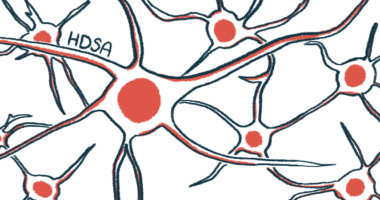Children of Huntington’s Parents Need Social Support, Face Barriers
Many study participants said they didn't get the support they needed

Social support for children of a parent with Huntington’s disease from someone other than a caregiver is important in helping them manage stress and adversity, but there are obstacles to obtaining that support, a study has found.
People who’ve lived with a parent with Huntington’s reported that, while social support made them feel connected, helped them cope, and relieved the burden of their responsibilities, they still felt they couldn’t always get the support they needed because others didn’t understand their situation.
The study, “Social support experiences when growing up with a parent with Huntington’s disease,” was published in Health Psychology and Behavioral Medicine.
Social support is a known predictor of psychological health in children, with greater support linked to better stress resilience, or the ability to “bounce back” from adversity.
Such support can come in multiple forms, including giving love or sympathy (emotional), facts or advice (informational), or behavioral or material assistance (instrumental).
For children living with caregivers who have an illness such as Huntington’s disease, receiving enough support from their parents may be challenging, making social support from non-caregivers particularly important for helping them cope with stress.
To better understand the experiences of these children, the research team analyzed interview data collected in 2018 from 36 people in Norway who grew up with a parent with Huntington’s.
The interviewees ranged in age from 13–65, and 26 of them were women.
While each person’s experience differed in many ways, the research team identified common themes which were categorized into how social support helped and the obstacles they faced receiving this support.
Some participants noted that they had a network of family, friends, and professionals who made them feel supported, but most seemed to have one significant person or group who provided them with support.
Patients generally said this support helped them feel connected to someone who made them feel loved and cared for, and helped them feel less alone.
Other types of support helped them develop coping skills and better understand Huntington’s disease, which enabled them to develop a more positive outlook about their prospects of inheriting the disease.
“The more information I got, the safer I felt. In terms of the possibility that I could become ill one day too, I learned that everyone with [Huntington’s] is not the same. That was really good to know,” one participant said.
Having social interactions helped participants escape from the stress they felt at home. For some, the responsibilities they had to take on were alleviated when another person helped them.
Overall, supportive relationships were found from many sources, including healthcare professionals, teachers, informal relationships, relatives, neighbors, peers, and pets.
Despite these perceived benefits, participants said receiving support was hindered in multiple ways, with many reporting their needs were not well understood.
This stemmed in part from a lack of acknowledgement from their parent about their disease. They felt that their parents’ denial of their disease prevented the true nature of their home lives from being appreciated by others.
Interviewees also felt there was a general lack of knowledge about Huntington’s, leaving others not knowing what to do to help.
“Perhaps, they didn’t know how to tackle it. Perhaps, it was just easier to do nothing when they didn’t know what to do,” a participant said.
When support was provided, it sometimes didn’t align with their needs, causing feelings of rejection and helplessness.
“Even though I know they are only trying to be supportive [and] they want me to talk to them and want to help me, it’s like … it only makes it worse,” a person noted.
Children also felt a need to protect their family and themselves by not involving others. Some feared the exposure would cause them to be separated from their parents or would upset them.
Others said they avoided interactions as a form of self-preservation to avoid dealing with difficult feelings or exposure to others’ negative judgments.
One participant stated, “I didn’t want them to treat me differently. I just wanted to be the same as everyone else. I felt they treated me like, ‘Oh, we have to take very good care and watch out for this one,’ and they didn’t do that with the other children.”
While these relationships help to buffer stress, barriers to support still hindered children’s ability to adjust to the challenges of living with a parent who had Huntington’s.
“Support may not be experienced as helpful unless it is perceived as addressing the issues young people themselves feel they are facing,” the researchers wrote. “Those in contact with families with [Huntington’s] need to gain knowledge and understanding of the disease and young people’s needs, thus helping them overcome the many obstacles they face.”







